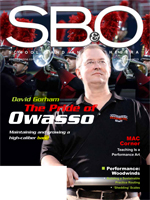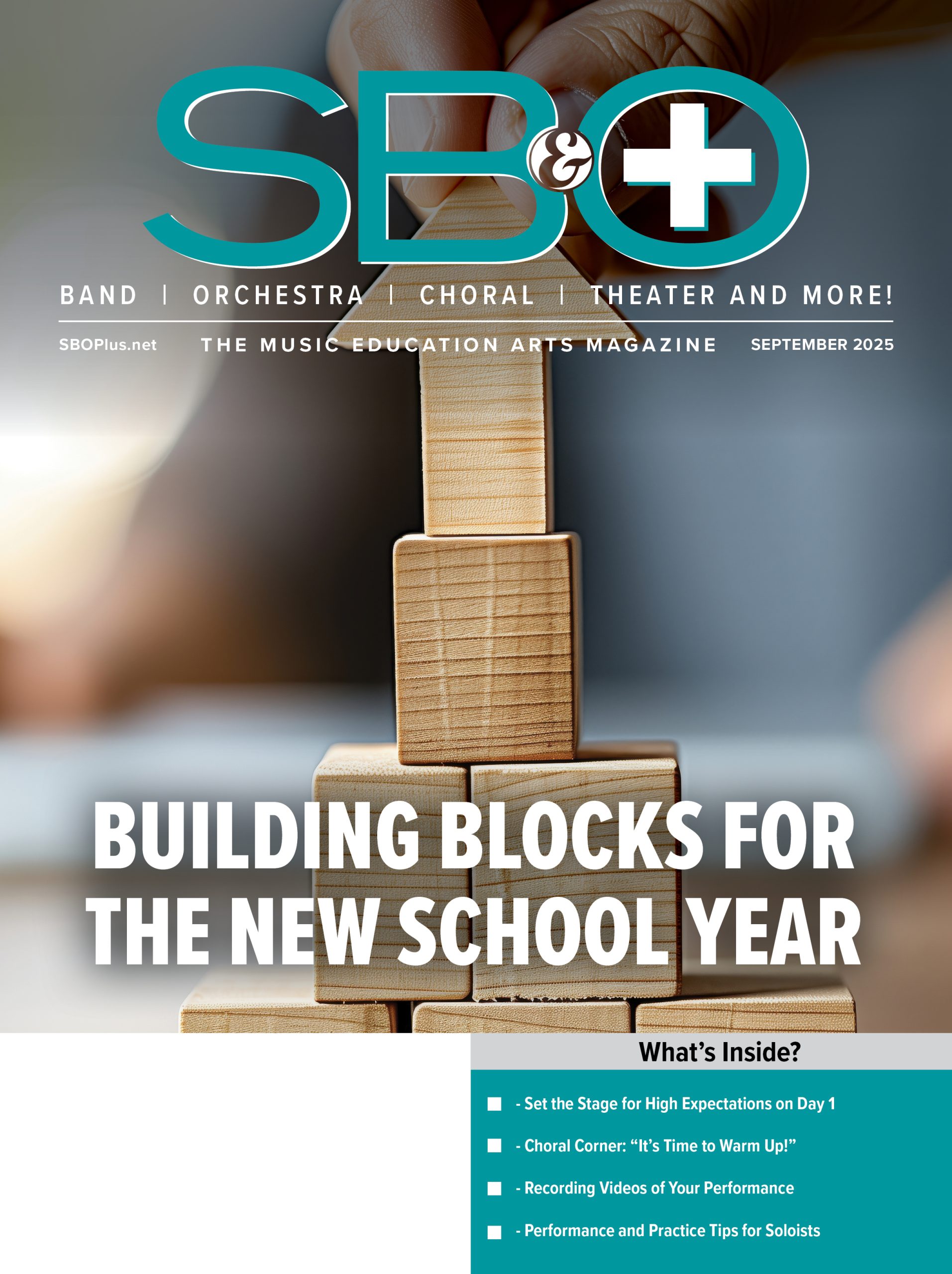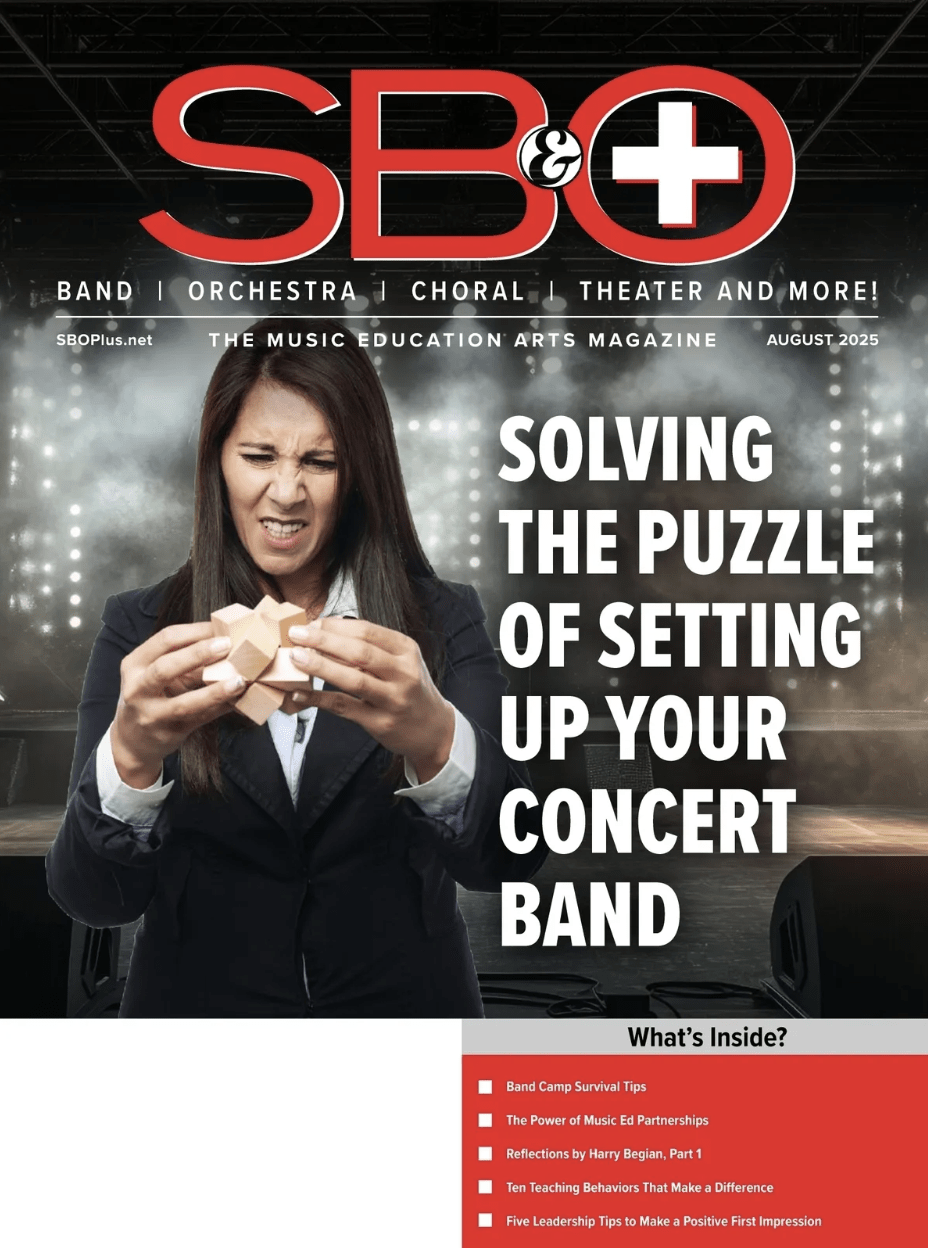Not long ago, new advancements like computers and software began enhancing how educational institutions provide instruction. Technology has also now embraced communication and social networking at a dizzying pace. This rapid innovation has created two categories of teachers: digital natives, who intuitively use technology; and digital immigrants, who have a longer learning curve with new hi-tech tools. Oftentimes, students are the natives while teachers are the immigrants. We can take advantage of this by letting students teach us as we engage in innovative technology and techniques, especially as it relates to blogs and social networking, which are two powerful tools that can assist music educators.

The Social Networking Phenomenon
There is no denying the impact of social networking in today’s world. These are some of the most popular social networks summarized from a panel discussion presented by Marina Terteryan of Alfred Publishing at the 2011 Jazz Education Network (JEN) National Conference.
The recent successful 18-day rebellion in Egypt was attributed in part to Facebook’s mass communication capabilities. As of early 2010, Facebook boasted well over 500 million active users with 200 million people logging in via mobile devices. If Facebook were a country, it would be the third largest in the world. Twitter’s growth has been so stratospheric that it now has a market value of 5 billion dollars and has changed the lexicon with catchy terms such as “tweeting” and “hashtag.” Although only 8 percent of online Americans use this microblogging service, 95 million tweets are written per day. LinkedIn is the leading business-oriented social networking site. Tumblr is a microblogging site that blends the best aspects of traditional blogs and social-networks. Tumblr users can reblog any post with one click. In Facebook, they can “like” a post with or without leaving full comments. Flickr is a great social-network with free online photo sharing services, user-friendly organization tools and a straightforward tagging system. If you are a digital immigrant, blogging may be the most practical way to begin social networking because it can immediately impact your teaching in creative ways.
Blogging has revolutionized the way people create exciting multimedia websites without HTML expertise or even a website domain. Hundreds of music educator’s are blogging. Dr. Joseph Pisano, 2011 Teacher of the Year for TI:ME and a professor of music at Grove City College in Pennsylvania, compiled a list of prominent bloggers (mustech.net/projects/100-me-bloggers#MElist) containing excellent links with which to brainstorm. He has a great list of the benefits of writing a blog:
- Reflection, introspection, and thought crystallization
- Sharing knowledge with students, peers, or the world (global conversations)
- Contributing to a larger database of information (active research)
- Writing practice
- Creative outlet
- Digital mentoring
- Active sharing of media (pictures/photos/videos/webcasts/podcasts/vidcasts)
- Creating a network of peers and colleagues
- Advertising concerts, clinics, or anything else (publicity)
The word “blog” comes from the older term, “web log.” These regularly updated on-line journal entries may be private or readily accessible to the general public. Entries are usually written in chronological order and commonly displayed in reverse chronological order. For educational purposes, it might be best to use a closed-access blog that requires a login and password to avoid security breaches. WordPress, one blog-hosting site, has this feature built in. Other free blog sites to consider are Blogger, Tumblr and Posterous. Tumblr is a favorite of mine because it is more multimedia capable than others, and even allows users to save up to 20 MB of audio online on a daily basis, making it possible to update daily podcast within the blog and not worry about where to save and store the audio file. I also like blogger.com because of its power and user-friendliness. All of the above-mentioned blogs have on-line tutorials with step-by-step guides. Generally, posting can be done in three or four minutes with just a few steps, after creating an account and selecting a template for the blog. The text for your first posting can be copied and pasted into the blog from your word processor or e-mail program and quickly posted. The learning curve is minimal compared to constructing HTML web sites.
Andy Zweibel presented an excellent clinic at the 2011 TI:ME national conference in Cincinnati entitled “Music Teacher 2.0: Blogging Your Way to a Better Classroom.” A special set up at musicedmajor.net/time11/ has downloadable clinic handouts and his PowerPoint presentation. This “native,” a senior at the University of Miami, gave clear rationale for the connectivity of social networking among music educators. Reading other teachers’ blogs can refresh and validate our ideas and projects and inform us on handling challenging situations. One of the difficulties in music teaching can be our isolation. Nine out of every 10 teachers in the clinic did not teach with another music teacher in the same building. Contrast this with academic teachers in your building, who may have several colleagues to talk to at lunch, planning period, and before or after school. Bloggers freely ask and answer questions ranging from management to tone production. And it’s a great way to get news, inside scoops, and send high-fives.
How about engaging students with writing assignments about what they are doing in class, perhaps posting them on a weekly basis to a school blog? A blogged writing assignment would be right up their “native” alley, and administrators would certainly appreciate any display of enthusiasm for writing. However, for security reasons, I recommend not posting students’ full names – use initials or first names only.
RSS Feeds
The secret ingredient to blogging is the RSS feed, which enables web-based aggregation. “RSS” stands for “Really Simple Syndication,” and RSS feeds are designed to automatically deliver blog updates through a family of web feed formats used to publish frequently updated works, including blog entries, news headlines, audio, and video. An RSS feed automatically sends you any new updates from the blog(s) that you have chosen to subscribe to. This means that you only have to go to one place to receive the latest documents from however many blogs that you have subscribed to, without needing to go to each of the individual blogs to stay current. All blogging platforms have active RSS feeds built-in to them, requiring no knowledge from the blog owner/writer. You simply post an article and it is automatically added to your site’s RSS feeds. It has an orange icon and when clicked, it searches for the latest blog updates that you have subscribed to.
If you want to author podcasting, one of the easiest ways do that is through a blogging Burner; or consider using Podomatic, a free blogging platform specifically for podcasting. iTunes allows users to subscribe to both video and audio podcasts through their services. Those Podcast authors that have registered their sites with iTunes are able to automatically notify iTunes of new content the instant they publish their podcasts through the RSS mechanism.
Subscribing to multiple RSS feeds can be vastly simplified by utilizing OPML files. For example, Joseph Pisano maintains an OPML file on MusTech.net that contains the RSS feeds of almost 100 active music related sites. By subscribing to his OPML file through an RSS reader (like Google Reader) you will instantly be subscribed to all of the RSS feeds at one time. Web sites like MusicEdNews.com utilize RSS feeds to bring visitors the latest information from multiple sites. This type of RSS syndication and republishing is known as Web-based RSS aggregation. It can be seperated into categories like music technology, pedagogy, instrumental techniques, instrumental, vocal, strings, and so on, with the five most recent posts updated from each blog. Through Web 2.0 magic, you get every single update to MusicEdNews.com even faster by following its Twitter Entity: @musicednews. RSS allows users to avoid manually inspecting all of the websites they might be interested in because new content will be automatically passed on to their browsers when it becomes available.
Examples of Music Educator Blogs for Professional Development
Let’s first view Andy Zweibel’s blog at musicedmajor.net/2011/01/. You’ll quickly recognize the magnitude of what he’s doing. Although written for college students, it hosts a vast amount of information for music educators with links, archival postings, conference presentations, downloadable files, popular posts, and more. The blogging resources, RSS/Aggregation resources, and Twitter resources (micro blogging) contained there are all pertinent for both newbies and digital natives.
It is impossible to separate a blog from a person, so I listed the people operating the blogs, as well as information on their blogs, in the list below (which was originally compiled by Dr. Pisano). These selected blogs represent a wealth of information that can be fed via RSS directly to your computers.
Selected Music Education Blogs:
Music, Education, and Technology: MusTech.Net (mustech.net) – Dr. Joseph Pisano’s blog is one of the oldest and active music blogs online. This blog contains over 700 articles about music education, music technology, and social media for educators and musicians.
Elementary Music and Music Technology Blog (musicroomburns.net/) – Amy Burns’ blogs about her experience as a music elementary teacher and provides many articles about integrating various forms of pedagogy and technology into the primary music education classroom.
MusicEdMajor.Net (musicedmajor.net) – Andy Zweibel, currently a senior at the University of Miami, started this blog his sophomore year in order to get other pre-service music majors connected to each other and through music education social media.
MusicEdTech (musicedtech.com) – Barbara Freedman’s blog provides articles about using technology to teach, learn and create music in multiple music education scenarios.
Music Education at About.com (musiced.about.com/) – Espie Estrella provides daily information about music education and useful pieces of information for music educators.
Africlassical (africlassical.blogspot.com) – William Zick blogs about African heritage and influence in the classical music genre.
Making the Most of Notation Software (tomrudolph.berkleemusicblogs.com) – Dr. Tom Rudolph’s blog focus on music notation and provides a number of tutorials and tips for making music notation both faster and easier.
Teaching Music in the 21st Century (teachingmusic.posterous.com) – Brian Wis blogs about his experience as a music educator and high school band and orchestra director.
MusicTechForMe (musictechforme.com) – Keith Mason’s original Music, Education, and Technology Blog. This blog contains dozens of Music Education related podcasts.
BandEdToolShed (rogerwhaley.blogspot.com) – Roger Whaley has created a blog where he writes about music education and band directing.
Other Social Media Sites and Projects:
The Music Educators Professional Learning Network (musicpln.org) – This website is the “facebook” of Music Education and includes groups for discussion about a variety of music topics including conducting and ensembles.
Facebook Group: “I’m a Band Director” (facebook.com/banddirectors) – A relatively new, and active, group on Facebook for discussing life as a band director.
Twitter Music Educators List (mustech.net/projects/musictwitter) – A reviewed list of Music Educators to “follow” on Twitter. By following this list, anyone can easily be immersed in the “social good” that is coming out of Twitter for music educators.
MusicEdNews.com (musicednews.com) – An online news aggregator containing information from almost one hundred Music Blogs and Websites.
Music Education RSS/OPML Project (mustech.net/projects/poem_ – Follow dozens of music websites with any RSS Reader by utilizing this project.
The Educator’s PLN (edupln.ning.com) – This site is dedicated to providing educators of every type an avenue to discuss the education profession.
Classroom 2.0 (classroom20.com) – Classroom 2.0 is an enormous social media website specifically designed for educator collaboration.
TBA Yellow Board (theyellowboard.com) – While a somewhat older “2.0” technology, The Texas Band Director Yellow Board is still one of the best places to find discussions about directing bands.
Twitter #musedchat (musicedmajor.net/musedchat/) – A weekly discussion about any and all Music Education related topics on Twitter at 8 PM Eastern time.
Ischoolband.com (ischoolband.com) – A private, commercial, social network for your band or ensemble. It includes various ensemble management tools and a “Facebook” like communications platform for the students and directors.
Summary of Best General Social-Networking Practices:
- Make sure you have a website to direct folks back to and link all online presences together.
- If you don’t join any other network, at least build a Facebook page for yourself and your group.
- Spend 10 minutes a day online doing professional development.
- Share links to articles with your students from print magazines and supplementary YouTube videos.
- Have your students manage the pages to promote the group.
- Measure effectiveness by amount of friends, interaction, number of clicks back to your site.
- Focus on value-added posts – video of the week, jokes, teaching tips (not just promoting your events).
- Don’t be afraid to contribute content, share tips, comment on others’ posts.
- Make a goal to update your status/page at least every day or two.
- Be open to changing your strategy based on feedback.
- Figure out what type of content/interaction works with your community (find your “voice”).
- Connect to parents and encourage them to participate.
Closing Comments
Many music educators and advocates are uncertain about how using social media technologies, but simply choosing to ignore or dismiss them means losing out on opportunities. Blogging can be the gateway to social networking. It’s the latest professional development tool connecting you with educators in the field regardless of geographic distances. There’s no faster way to expand your horizon than networking with colleagues via social networking. The price is right, since many options are free and don’t require programming or technical skill. The quicker you jump on this technology, the sooner you’ll move from an immigrant to a native in this rapidly changing world.



























